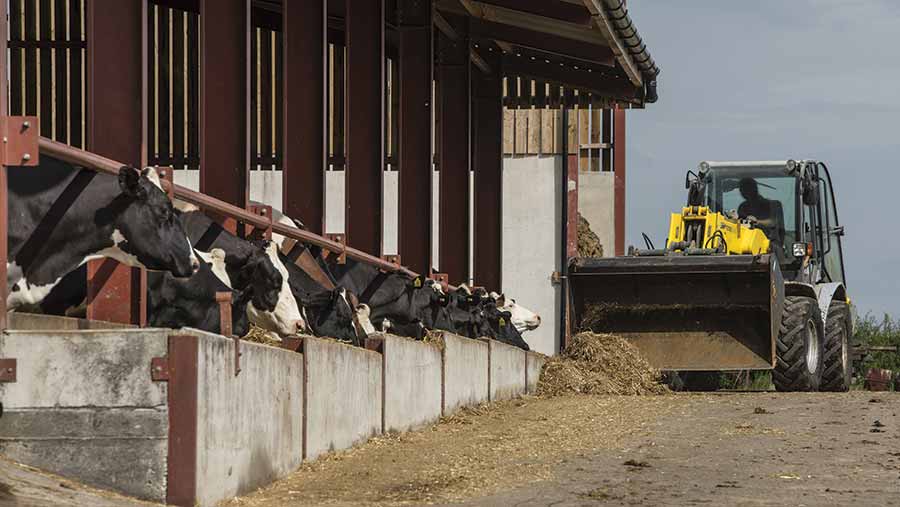‘Change of mindset’ can help beat dairy slump
 © John Eveson/REX Shutterstock
© John Eveson/REX Shutterstock Dairy farmers have been challenged to focus on a business-led approach to ensure milk production remains viable rather than relying on protests and lobbying to secure better prices.
About 80 farmers and industry professionals gathered for a dairy summit to discuss a way forward for the sector, which has suffered two years of price cuts. Held in London on Tuesday (3 November), the goal was to identify fresh approaches to secure a future for UK dairy production.
Savills agribusiness director William Neville told the event that being fit to succeed in a volatile world required a change of mindset. Milk producers should draw up a checklist and use it to make better farm management decisions consistently, he said.
See also: Dairy Crest formula milk price drop for November
Mr Neville said: “A well-run business will consistently make better decisions and will pull ahead of the business that muddles on or, worse still, makes no decisions at all and just relies on Farmers For Action or the NFU to produce a magical result from time to time to keep them in business.”
“The way ahead lies in business innovation and running dairy farming businesses better, with the result that dairy farmers will consistently make better decisions.”
William Neville, Savills
The checklist should include asking whether the farmer has the determination to take control of their own destiny – and avoid the mindset of feeling victimised. It should identify business goals, take an honest look at production costs and involve working closely with customers and lenders.
Mr Neville told listeners: “There are no silver bullets lying around in an unused arsenal or magic wands to be waved. The way ahead lies in business innovation and running dairy farming businesses better, with the result that dairy farmers will consistently make better decisions.”
The dairy summit was organised by AgriHive – a group of UK farmers and dairy industry professionals brought together by James Walker, a Nuffield scholar from Australia. It invited comments on a case study to examine what dairy units can do in the future.
Cumbrian dairy farmer Robert Craig said the dairy industry always dealt with crises in the same way – first looking to drive on-farm efficiency, then searching for someone to blame, and finally turning to representative bodies for help. This had to stop, he said.
“Unfortunately, the cycle just continues again and again, resulting in fewer and fewer dairy farms,” said Mr Craig, who helped organise the AgriHive event. “If we are to stop the terminal decline of the UK dairy industry we need to try something different.”
